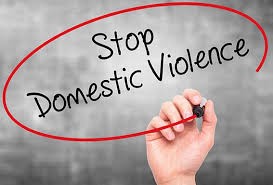Domestic violence is a pervasive issue that transcends social, cultural, and economic boundaries, deeply affecting individuals and families worldwide. It is not merely a private matter but a serious human rights violation and a public health concern. Understanding domestic violence—its types, causes, and effects—is crucial for addressing this menace and creating a safer society. This article delves into these aspects while also shedding light on the relevant laws designed to combat domestic violence.

Types of Domestic Violence
Domestic violence manifests in various forms, including:
- Physical Violence:
- Involves causing physical harm or injury through acts such as hitting, slapping, kicking, or strangling.
- Often leaves visible marks and can escalate to life-threatening situations.
- Emotional or Psychological Abuse:
- Includes verbal abuse, intimidation, isolation, and manipulation aimed at undermining the victim’s self-worth and mental well-being.
- Sexual Abuse:
- Involves forcing a partner into unwanted sexual activities, often through coercion, threats, or physical violence.
- Economic Abuse:
- Includes controlling a partner’s financial resources, restricting access to money, or sabotaging employment opportunities.
- Digital Abuse:
- A growing concern in the digital age, involving harassment, stalking, or monitoring a partner’s activities through electronic means.
Causes of Domestic Violence
Domestic violence is driven by a complex interplay of individual, societal, and cultural factors. Some common causes include:
- Power and Control:
- The desire to dominate and control a partner often underpins abusive behavior.
- Cultural Norms:
- Societal acceptance of patriarchal values and gender inequality can perpetuate violence against women and marginalized groups.
- Substance Abuse:
- Alcohol and drug abuse frequently act as triggers for violent behavior.
- Mental Health Issues:
- Unaddressed mental health conditions in abusers can contribute to violent tendencies.
- Learned Behavior:
- Individuals exposed to violence in their childhood are more likely to perpetuate the cycle in their own relationships.
Effects of Domestic Violence
The consequences of domestic violence are far-reaching, impacting individuals, families, and communities:
- Physical Health:
- Victims often suffer injuries, chronic pain, and long-term health complications.
- Mental Health:
- Anxiety, depression, post-traumatic stress disorder (PTSD), and suicidal tendencies are common among survivors.
- Children’s Well-being:
- Children exposed to domestic violence are at risk of developmental delays, emotional distress, and behavioural issues.
- Economic Impact:
- Victims may face financial hardships due to loss of employment or increased healthcare costs.
- Societal Cost:
- Domestic violence strains healthcare systems, law enforcement, and social services.
Relevant Laws Addressing Domestic Violence
Many countries have enacted laws to combat domestic violence, ensuring protection and justice for survivors. In India, the primary legislation is:
- The Protection of Women from Domestic Violence Act, 2005 (PWDVA):
- Provides civil remedies for victims, including protection orders, residence rights, and monetary relief.
- Recognizes physical, emotional, sexual, and economic abuse.
- Indian Penal Code (IPC):
- Sections 498A and 304B address cruelty and dowry-related harassment, respectively.
- Criminal Law (Amendment) Act, 2013:
- Strengthens provisions against sexual violence, ensuring stricter punishment for offenders.
- Prohibition of Child Marriage Act, 2006:
- Addresses child marriage, a practice often linked to domestic violence.
- Dowry Prohibition Act, 1961:
- Targets dowry-related abuse, a prevalent form of domestic violence in India.

Steps Towards Prevention
Addressing domestic violence requires a multi-faceted approach:
- Legal Awareness:
- Educating individuals about their rights and available legal remedies.
- Community Support:
- Establishing support groups and helplines to assist survivors.
- Counselling and Rehabilitation:
- Providing psychological and financial support to help victims rebuild their lives.
- Education and Advocacy:
- Promoting gender equality and challenging cultural norms that condone violence.
- Stringent Law Enforcement:
- Ensuring effective implementation of laws to deter offenders and protect victims.
Conclusion
Domestic violence is a grave issue that demands collective action. By understanding its types, causes, and effects, and by leveraging robust legal frameworks, society can make significant strides toward eradicating this scourge. Empowering individuals through education, awareness, and support systems is essential to fostering a culture of respect, equality, and safety for all.
If you’re facing challenges or need expert advice, Narendra Madhu Associates is here to assist you.



